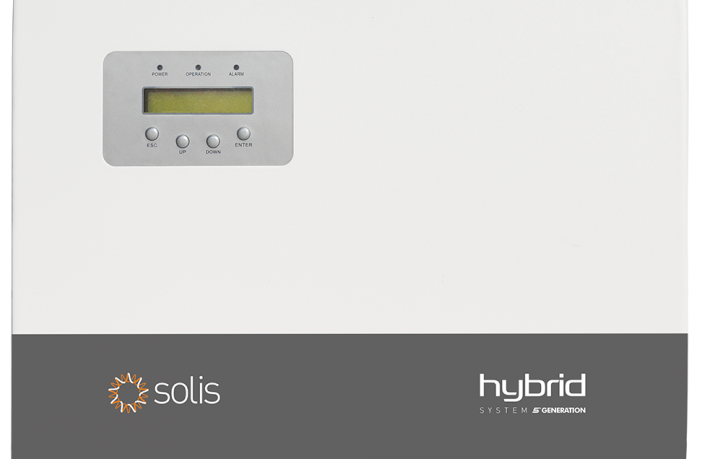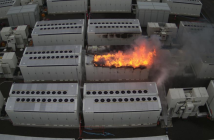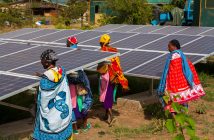- The Chinese manufacturer has unveiled a hybrid product with a power range of 6.5-13 kW.
- The device has a maximum efficiency of 98.4%, according to Ginlong, and battery charging/discharging efficiency of 97.5%
Chinese inverter manufacturer Ningbo Ginlong Technologies has launched a hybrid residential inverter it claims can ensure AC back-up for up to 10 kW of continuous power and 16 kVA of peak power.
The three-phase RHI-3P(5-10)K-HVES-5G battery inverter is available in four devices with power ratings of 6.5, 7.8, 10.4 and 13 kW. The product also features a maximum input voltage of 1,000 V per string, according to the manufacturer.
The transformer-free inverters have two maximum power point tracking (MPPT) channels, with MTTP voltage ranging from 200 V to 850 V. The products all measure 535x455x181mm and weigh 25.1kg. Maximum efficiency is 98.4% with a European efficiency rating of 97.7%, according to the manufacturer. Ginlong reports MTTP efficiency of 99.9% and battery charge/discharge efficiency of 97.5%.
The lithium-ion battery has charge/discharge power of 5, 6, 8 and 10 kW for the four inverters, with battery voltages of 160-600 V.
Ginlong says its hybrid inverter can operate at lower than 4,000m altitude and at temperatures of -25 to 60 degrees Celsius. The products also have an arc fault circuit interrupter (AFCI) function. “Power supply can be switched automatically and switching time [is]within 40 minutes,” the inverter maker said.
As with other 5G inverters produced by Ginlong, the new device uses a bipolar PWM control algorithm the company claims can reduce the change rate of common-mode voltage. Ginlong launched the 5G platform in August.
Author: Emiliano Bellini
This article was originally published in pv magazine and is republished with permission.












1 Comment
Can I please get a quotation for NEW SOLAR RESIDENTIAL BATTERY / INVERTER FROM GINLOG